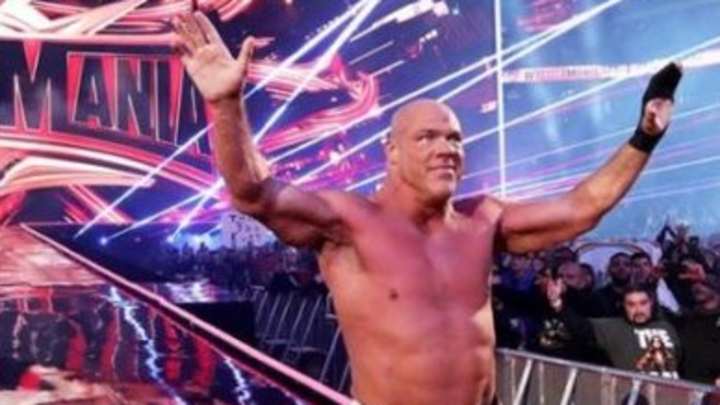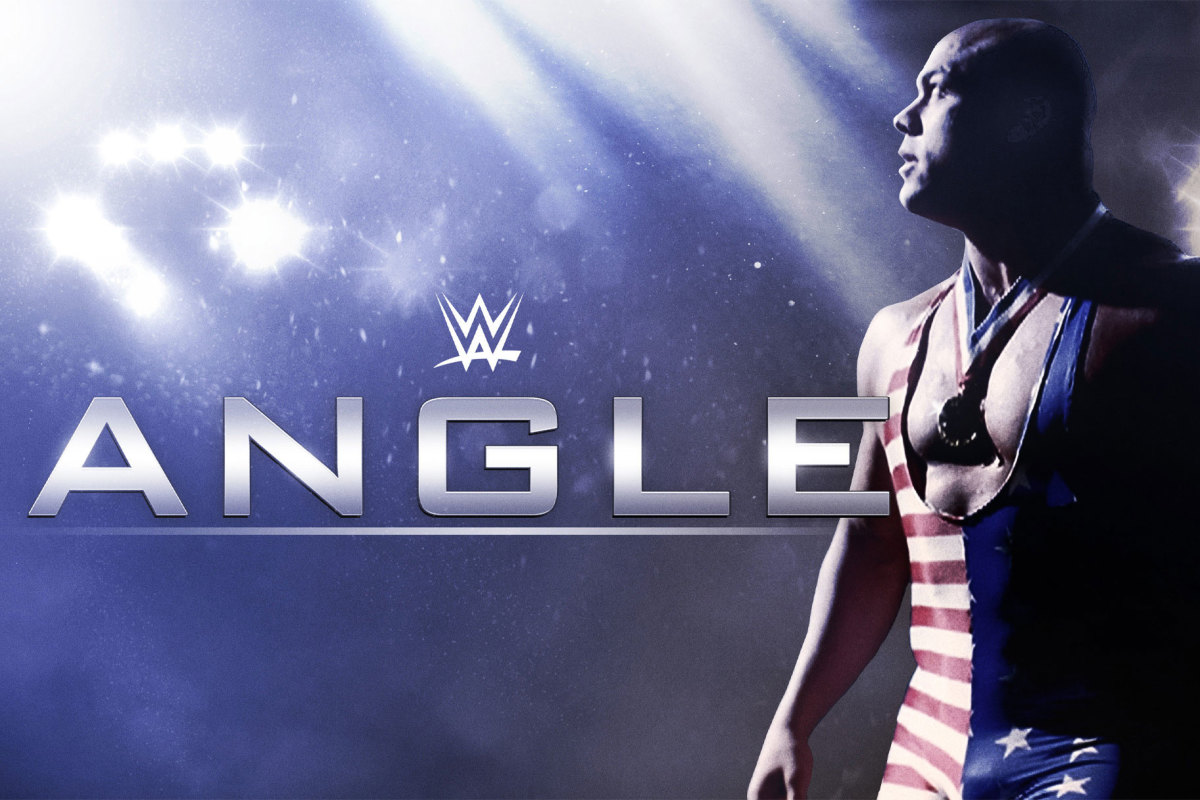‘Angle’ Documentary Captures the Essence of Kurt Angle

If you are a fan of Kurt Angle, the new Angle documentary is a must-see.
And if you are not a fan, then you will be by the end of this film.
Somehow, his rise to stardom in pro wrestling was not even the most compelling element in the documentary. Angle’s improbable journey to an Olympic gold medal in wrestling represented the heart of Angle, capturing the suspense and uncertainty surrounding his severe neck injury and the murder of his coach–which all took place in the run-up to the ‘96 Olympics.
“It’s hard to believe it all happened the way it did,” said Angle, who won a gold medal despite suffering four broken vertebrae only a month before the Olympics. “I didn’t want money, I didn’t want fame. I wanted that gold medal around my neck.”

Angle grew up in Pittsburgh, and football was his first love. He initially wanted to play collegiate football as a linebacker, and footage from his high school career at Mount Lebanon High School is included in the documentary. But he started to prefer wrestling, becoming a force in high school and then an exceptional talent at Clarion University.
He won a national title in college, defeating monster heavyweight Sylvester Terkay (“It was the smartest match I ever wrestled,” said Angle), but then fell into the worst rut of his career at the 1993 World Team Trials. As fate would have it, he was then invited by former gold medalist David Schultz to join the prestigious Foxcatcher wrestling club in Philadelphia, Pennsylvania, which was owned by the eccentric John du Pont.
“Dave saw something in me that a lot of people didn’t,” said Angle. “And I’ll tell you this–our first day together, he beat the sh-- out of me. He was 40 pounds lighter than me, but he was whipping my ass. It was all about positioning. He taught me that technique.”
In a murder that remains a mystery, du Pont killed Shultz in 1996, only months before the Olympics. Utilizing the lessons that Shultz taught him, Angle won a gold medal–and his influence stayed with Angle when he moved into pro wrestling.
Angle’s first-ever wrestling singlet in WWE was a tribute to Shultz. He also applied the technique Shultz taught him in his most famous untelevised wrestling match, when he and Brock Lesnar tested each other’s freestyle skills.
“We wrestled just once,” said Angle. “It was during the day before a WWE show back in 2002.”
Shultz trained Angle for three-and-a-half years, with a focus on technique. Nearly a decade later, those were the principles he used to defeat Lesnar.
“Dave taught me how to teach myself,” said Angle. “The technique he instilled in me, that’s ultimately how I beat Brock.”
It all started when the Brooklyn Brawler pressed Lesnar to boast that he could beat the undersized Angle in a wrestling bout. Once he did, Brawler practically sprinted toward Angle, letting him know that Lesnar felt Angle was too small to ever beat him.
“Brock said he’d beat my ass,” said Angle. “So when Brawler told me that, I said, ‘Let’s go.’”

With a seemingly endless amount of time before the building opened to the public, the WWE roster was getting its own unique performance as Lesnar was roughhousing in the ring with Big Show. In front of that small, intimate audience, Angle slipped into the ring and let Lesnar know he had next.
“Brock was picking Big Show up, double legging him, just wrecking him–and that’s when I thought, ‘I don’t know if I can beat this kid,’” said Angle. “But I figured, I may as well try.”
The 15-minute bout was dripping in intensity. A former NCAA champion, Lesnar possessed the technique of a light heavyweight–but the body of a mammoth heavyweight. Lesnar outweighed Angle by nearly 80 pounds, but a combination of youth and power caused him to overlook that Angle had made a career out of defeating bigger opponents.
“It was a tight match,” said Angle. “I didn’t dominate. But I won.”
For those keeping score, Angle scored two takedowns. Lesnar scored none.
“There’s a big difference between a national champion and a gold medalist,” said Angle. “I knew Brock was going to do his college wrestling with straight double legs. It was all about positioning. That’s what Dave taught me, and that’s why I hardly ever got scored on. And Brock didn’t score on me.”
The Angle documentary, which was directed by Alex Perry, also details Angle’s nearly fatal battle with addiction. He opens up about the loss of his father and sister, and takes viewers on his roller coaster ride in pro wrestling. Angle mastered the psychology and technique, as well as the entertainment aspect, and he was willing to go to any lengths to put on a great match.
But he also misused the fearlessness gained from defying the odds in the Olympics, further abusing his neck in WWE and TNA as his life unraveled when he continually overmedicated.
“Painkillers made me feel less pain,” said Angle, who had a stretch of four DUIs in five years. “Those pills were my sanctuary. They hid my pain, physically and emotionally.
“I was an Olympic gold medalist, but that’s the thing about addiction. It doesn’t care who you are. The drugs took over my life. It was the worst feeling in the world.”
Angle now suffers from chronic neck, back, and knee pain. But even on his worst days, he is still proud to be a husband and father. He narrowly escaped a certain death, and that is the message of the documentary–sandwiched between the glory of his Olympic and pro wrestling conquests–that he wants people to remember.
“I was hesitant to tell my story,” said Angle. “But I’m here to be upfront and honest and let people know they can overcome addiction.
“I should be dead. I shouldn’t be here. That is why I need to tell my story. I hope my story helps families by saving lives. And honestly, that’s greater than any gold medal or championship I could ever win.”
